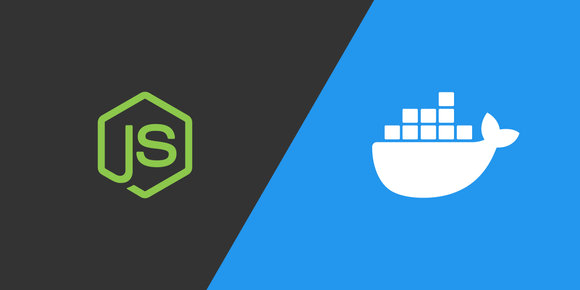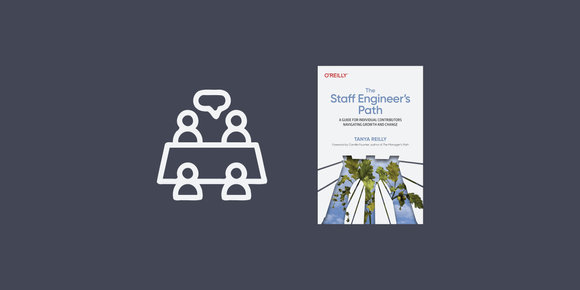I don't care if you're a 10x engineer, I care if we can build great things together.
When reflecting on times when I had high friction with a colleague, either on a single project or over a longer term, I had a thought: I work best with, and am motivated most by, people who want to work with others.
Sure, I want to work with smart engineers, there's a lot to be learned from being around engineers with experience that's different from or deeper than mine. But I don't need to work with so-called 10x engineers; I want to work with capable engineers with a strong sense of ownership, a learner mindset, and an eagerness to invite collaboration.
I do not think it is enough to be able to collaborate. Instead, I think the bar should be raised to: actively identifying situations where collaboration is possible, and actively inviting peers to collaborate with you.
In practice
To clarify my point, here are some scenarios where an engineer can invite collaboration:
- Architectural design / contract definition / RFC writing. Many engineers wait until an RFC is fully written before sharing it with their peers. Instead, try bringing others into your thought process early to create learning opportunities (for both you and them!) and gain an early advocate for your design. Further, seeking input from someone with a different set of experiences is likely to create a stronger design.
- Experimentation / proof-of-concepts / performance tuning. If a project's goal is to learn something through iteration, such that some decision can be made, try bringing others along for the learning process. A lot of learning happens through trial and error, and these learnings don't always make it into a results readout. The effective methodologies used during the experiment can likely be used again!
- Process definition. Processes typically affect many people, so if you're defining or proposing a process that will affect your peers, try inviting one or two of them along early in your thought process. Processes could include: code linter norms, testing norms, document norms, or meeting norms.
Collaboration doesn't just mean inviting a second opinion, there are other scenarios where you can scale others:
- When using subject matter expertise. Are you uniquely more experienced in an area than your peers because of a past experience or a side project? Invite them to walk through the task with you! This requires active thought on your part to identify these situations, but your peer will surely remember the kind deed.
- When documenting knowledge. Whether it's documenting existing architecture or writing a process how-to guide, walking someone else through the process will not only give them a private lesson, it will make you think deeper and force you to express more clearly.
Amortize Your Learning by Writing How-To Guides
Mar 4, 2024 · 6 min read
The time required to learn something new can be large, but you can make that cost worth it by teaching it to others.
- Mitigating or remediating incidents. If a lower severity of an incident allows for a longer time to resolution, invite some teammates along to help practice incident management soft skills. The only way to become better at impact assessment, task delegation, and communication with stakeholders & executives is by practicing. Lower-stakes situations are the right time to do this.
One, Few, or Many: A Guide to Rapid Impact Assessment
Nov 22, 2025 · 3 min read
Stakeholders love this one simple trick.
Why it matters to others
First, some reasons why actively inviting others to collaborate matters to them:
- It shares opportunity. As you become more experienced in your career and get promoted to higher titles, it is natural that you will get invited into projects and discussions that your less experienced peers aren't. People value your expertise, and they trust you to design & execute effectively. But not everything needs your attention specifically, or maybe you know of a peer with a better skill match than you. Invite a peer to join along! You have the ability to share opportunity to help others grow or demonstrate existing skills that will help with a promotion for them.
- It increases their visibility. Opportunity isn't just about the chance to learn or demonstrate hard skills, it's also the chance to build one's network and reputation. Visibility is key for getting promoted, especially at more senior titles.
- It breaks down knowledge silos. Does your team own a lot of services or domains, or do you think domain expertise is fragmented among engineers? Documentation can help spread knowledge, but practice is key for knowledge retention. You have the ability to help spread knowledge, which will build good will and increase team resiliency.
- It speeds up onboarding. How long did it take for you to feel fully onboarded at your current company, or your current team? 3 months? 6 months? A full year? Do you have a peer you can thank for helping you get there, or do you wish someone had taken more time to help you? No matter your answers, you now have knowledge that the next person will need, and one of the highest-leverage things you can do is to help get them productive quickly.
- It creates a safe space. Inviting someone to join you early in the process can help dispel imposter syndrome . Early on, you don't have all the answers, and have likely brainstormed some thoughts that will get left on the cutting room floor. Sometimes a less experienced engineer just needs to be shown that no one has all the knowledge, but that all knowledge can be knowable.
Why it can matter to you
Second, some reasons why actively inviting others to collaborate can matter to you:
- It increases optionality. You may get assigned a project/task or be invited to a conversation that isn't an opportunity for you. By inviting others into the fold, you can lessen your burden through joint ownership, handing it off immediately, or handing it off eventually. This may free you up for a project that is an opportunity for you.
- It grows the autonomy of others. You may feel like you're invited into too many conversations that don't uniquely need you or aren't aligned with your goals. Growing others' skills and knowledge may help prevent the next distraction from landing on your plate.
- It gains you advocates now. Engineers work in a social environment, you will need advocates for any change that you wish to make. Whether it's a new technical vision or a process change, collaborating with someone else can gain you an early advocate who can help get others on board. (See Matt Hodgkins' article on Nemawashi (根回し) .)
- It gains you an advocate for the future. Sharing opportunity will strengthen your relationship with this person. They will be more likely to be an advocate again for you in the future.
- It may demonstrate skills on your career ladder. Technical leadership or mentorship of others may be an explicit line item for the next title you're trying to get. Even if you aren't inherently motivated to grow others, selfishly, it may help your next promotion.
- It may help your change career ladders. If you're interested in becoming a people leader, this type of leadership and growth of others helps you practice required skills before you'll be evaluated on them.
Conclusion
It takes vulnerability to invite others into your process, especially when you don't have all the answers yet. But I think it is your responsibility to help grow others through invitation to collaborate.







